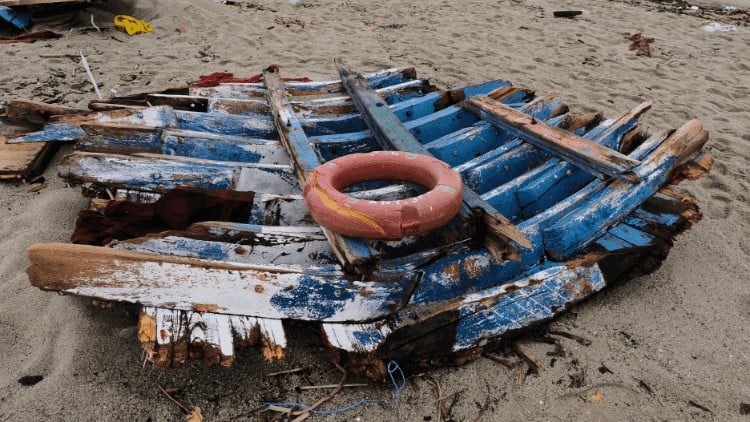People fleeing conflict are dying—especially in the Mediterranean en route to Europe—due to lack of safe pathways.

In the vast expanse of the Mediterranean, among the desolate stretches of the Sahara and amid countless perilous individual journeys across borders lies a harrowing reality which demands our attention—the tragic loss of migrant lives. For over a decade, the International Organization for Migration (IOM) has documented these deaths through its Missing Migrants Project, the only open-access dataset on migrant deaths and disappearances. It not only reveals the magnitude of the crisis but also sheds light on crucial insights, which could guide lifesaving interventions and policy reforms.
The project began in 2014 in the aftermath of two tragic shipwrecks off the coast of Lampedusa, which claimed the lives of more than 600 people. On a recent trip to Lampedusa, I was profoundly touched by the stories of migrants arriving by sea, including many from my country of origin (Nigeria). But I was also inspired by the IOM team’s dedicated efforts to treat them with care and dignity upon arrival. This experience reminded me of the importance of upholding humane practices in managing migration.
Deadliest year on record
When the Missing Migrants Project was established, we collected information almost exclusively from news articles on a simple spreadsheet. Ten years later, our data collection has improved dramatically, but the reality for migrants forced to take dangerous routes has not—we need to turn attention beyond the data into concrete action.
The data compiled by the project from 2014 to 2023 and released in a report this week show that the situation for people on the move has not improved in the last decade. Nearly 60 per cent of the more than 63,000 deaths documented globally during migration during that time are attributed to drowning—almost all in the Mediterranean. Search-and-rescue activities, facilitation of safe, regular migration pathways and other evidence-based action could prevent much of this loss of life.
Equally concerning is the fact that more than two-thirds of the deceased remain unidentified, leaving families and communities grappling with the profound anguish of uncertain loss. Moreover, the data reveal a distressing correlation between migration and conflict, with over one-third of identified deceased migrants originating from countries with large displaced populations or mired in violence.
The year 2023 stands out as the deadliest on record, with more than 8,500 lives recorded as lost during migration around the world. Across regions, from the Mediterranean to Africa, Asia and the Americas, the toll of human tragedy continues to mount. The Mediterranean alone witnessed more than 3,000 fatalities last year, with the central-Mediterranean route emerging as a particularly perilous corridor.
Glimmers of hope
Amid these grim statistics, there are glimmers of hope and opportunity. The data provided by the Missing Migrants Project serve as a powerful tool for informed decision-making and targeted interventions. By harnessing these insights, governments and stakeholders can craft evidence-based policies to mitigate risks, enhance safety measures and facilitate regular migration pathways.
Crucially, the imperative to save lives and protect vulnerable migrants transcends borders and ideologies. It is a shared responsibility which demands collaborative action on a global scale. The United Nations Global Compact for Safe, Orderly and Regular Migration offers a framework for such co-operation, emphasising the need for concerted efforts to safeguard the rights and wellbeing of all migrants.
As we look into the next decade, we must heed the call for actionable recommendations by the UN secretary-general, António Guterres, and other stakeholders. The recommendations, due to be published this year, present a pivotal opportunity to translate rhetoric into tangible measures that can save lives and uphold human dignity.
In this endeavour, partnerships are paramount. IOM calls for collaboration on missing migrants, underscoring the importance of collective action in addressing this humanitarian crisis. By joining forces, governments, civil-society organisations and international agencies can harness the power of data-driven solutions to avert further loss of life and offer solace to grieving families.
Beyond the statistics lie stories of courage and resilience but also untold suffering. Each life lost during migration represents a human being with dreams, aspirations and loved ones left behind. As we commemorate the tenth anniversary of the Missing Migrants Project, we must recommit ourselves to ensuring safe migration for all—so that, ten years from now, people will not still have to risk their lives in search of a better one.
Ugochi Daniels is deputy director general of operations at the International Organization for Migration. She is recognised as a United Nations (s)hero for her advocacy of women's health in humanitarian emergencies and commitment to protecting human rights and promoting peace.

